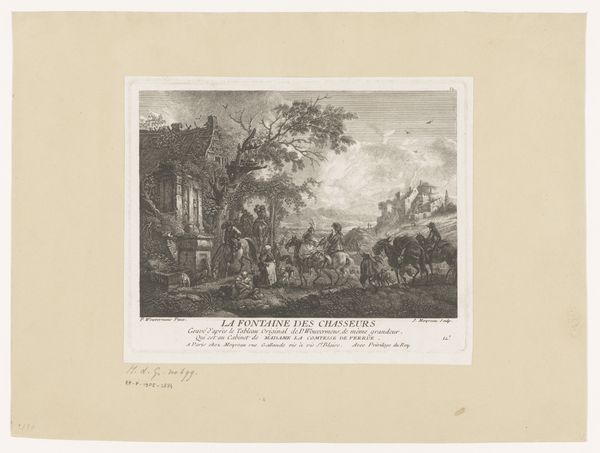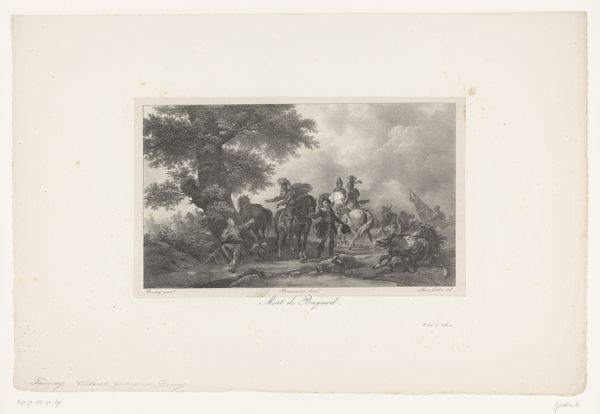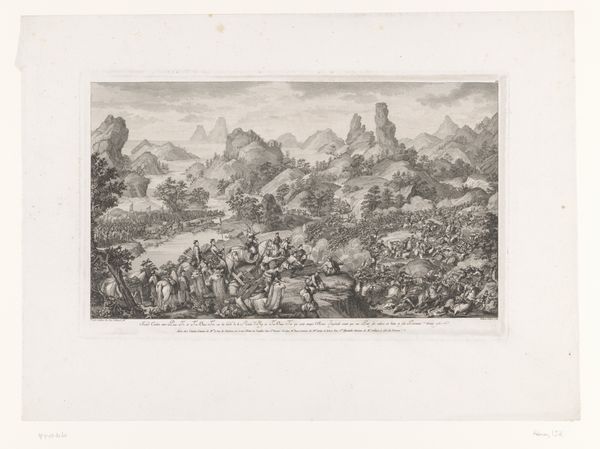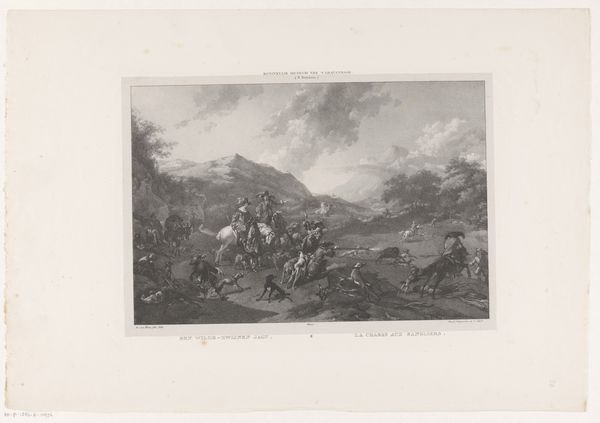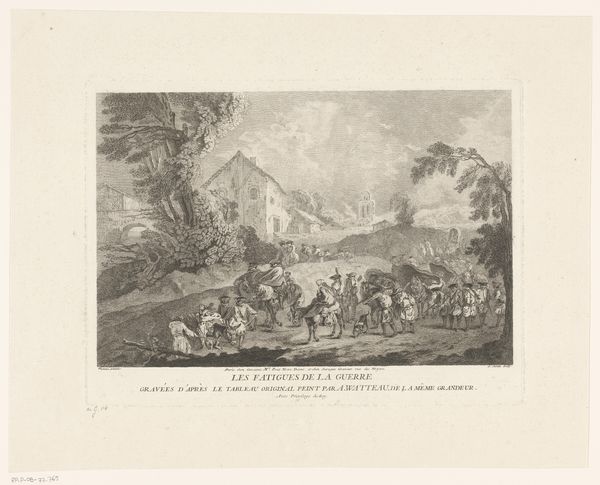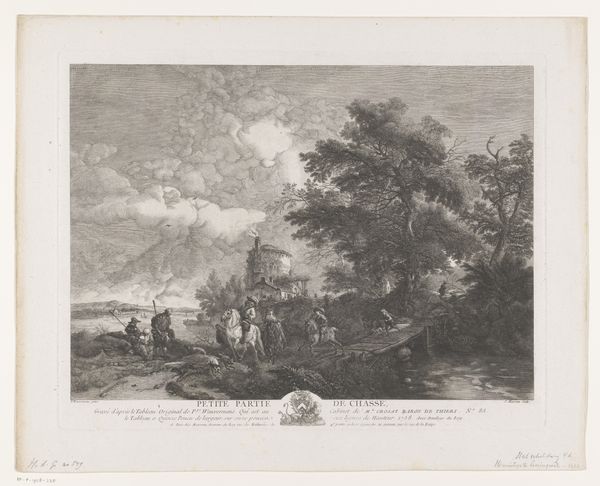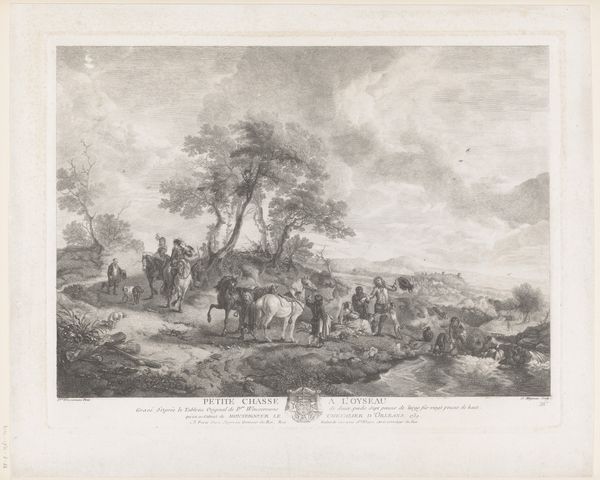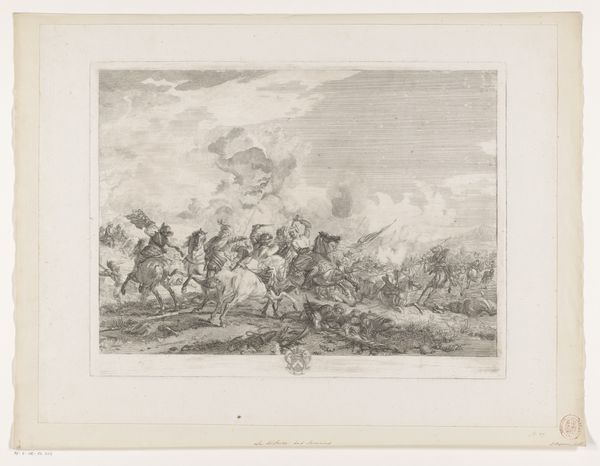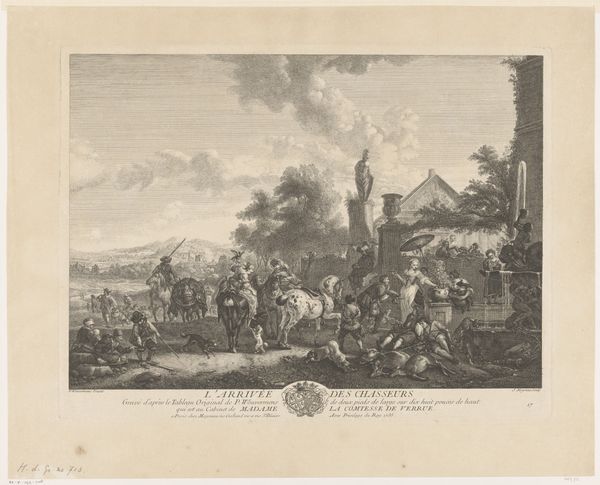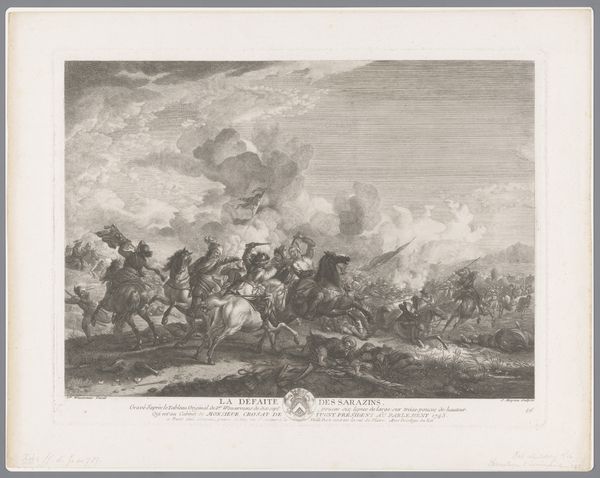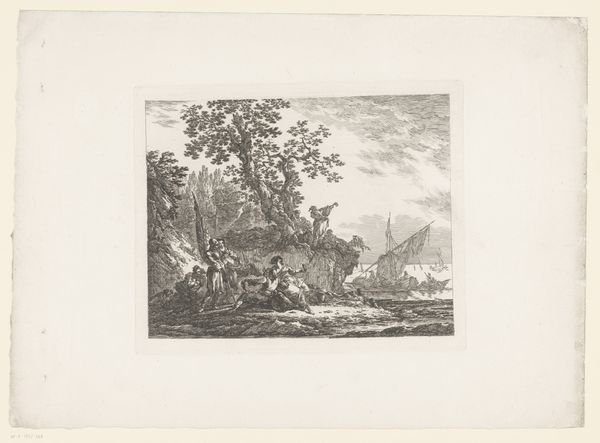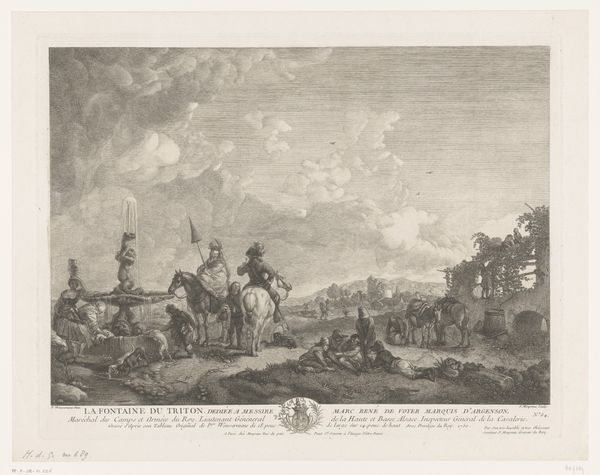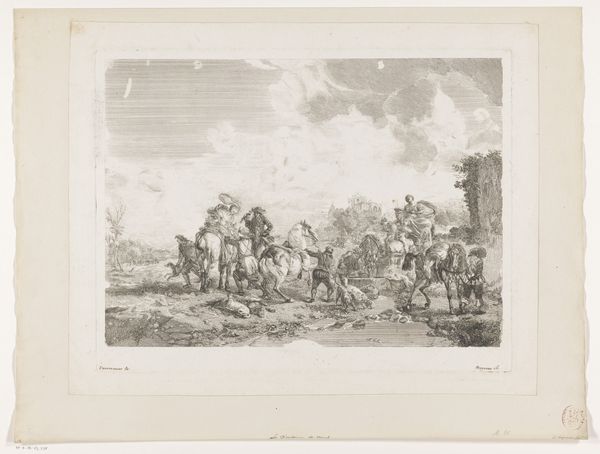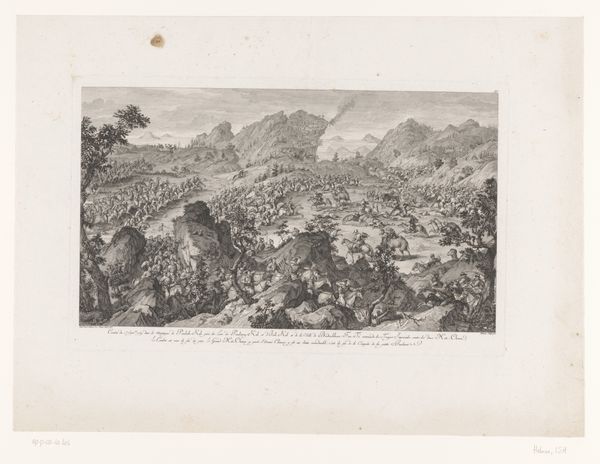
Dimensions: height 305 mm, width 402 mm
Copyright: Rijks Museum: Open Domain
Curator: What stands out to you about Pietro Antonio Martini's 1774 engraving, "Ruitergevecht met op de achtergrond een molen?" The "Rider Combat with a Mill in the Background," as it translates. Editor: Well, initially, the landscape and figures seem very dramatic. It looks like it was produced by engraving techniques. How would you approach this engraving from your point of view? Curator: From a materialist perspective, I'm drawn to the labor involved in producing this engraving. Consider the process: the physical act of etching the image onto a plate, the specific tools used, the types of inks and paper available in 1774. This isn’t just an image; it’s a record of human skill, material constraints, and consumption patterns of the era. Editor: So, you’re focusing less on the "story" of the combat and more on the physical production itself? Curator: Precisely. The material tells a silent history. Think about the accessibility of this image. Engravings were a way to democratize art, to reproduce images on a scale previously impossible. Who was the intended audience and what can the artwork suggest about period style, the historical-social background and visual composition? What social functions would this particular type of art fulfil at that time? Editor: That makes sense. I never thought about how an artwork can be viewed like that. Thank you for this different understanding.
Comments
No comments
Be the first to comment and join the conversation on the ultimate creative platform.
